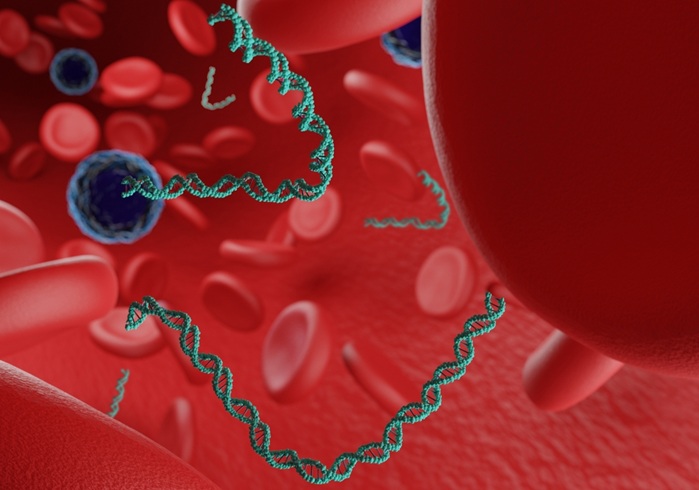Liquid Biopsy Assay Detects Recurrence in CRC Patients Prior to Imaging
Posted on 05 May 2025
The detection of circulating tumor DNA (ctDNA) after treatment is a strong indicator of recurrence in colorectal cancer (CRC), but it often goes undetected due to the low traces of ctDNA present in the blood. If captured early enough, blood-based biomarkers could provide critical insights that would be valuable for clinical decision-making. Now, interim results from the VICTORI study, presented at the American Association for Cancer Research (AACR) Annual Meeting 2025, show that an ultrasensitive ctDNA-based liquid biopsy assay can detect signs of recurrence before imaging and provide prognostic value within a month after surgery in CRC patients.
The VICTORI study, led by BC Cancer (Vancouver, BC, Canada), seeks to determine the optimal time point for detecting ctDNA to predict recurrence after surgery in CRC patients. This interim prospective analysis involved 71 patients with resectable CRC, including 52 with stage 1-3 disease and 19 with stage 4 disease. The researchers created personalized tumor tissue-derived panels of up to 1,800 somatic variants for each patient. Liquid biopsies were taken before surgery, every two weeks for eight weeks post-surgery, and every three months for up to three years, then analyzed using the NeXT Personal assay. All 33 patients with treatment-naïve disease above stage 1 had detectable ctDNA prior to surgery.

Of the 65 patients evaluable for clinical outcomes, 23 experienced clinical recurrence. The vast majority (87%) of these patients were ctDNA-positive within the eight-week post-surgical period during which adjuvant chemotherapy is typically given. Remarkably, all patients with clinical recurrence had ctDNA-positive results before recurrence was detected via reflex imaging, with a median of 198 days earlier, including in metastatic sites that are hard to detect, such as the lung. One patient showed ctDNA recurrence 416 days prior to clinical recurrence. The researchers found that ctDNA was detectable at levels as low as 2 parts per million (ppm). The median ctDNA level at the first detection was 24.4 ppm, with the highest at 111,120 ppm. Higher ctDNA levels at first detection were associated with shorter times to clinical relapse. The study is still enrolling more patients, and the researchers anticipate that this will enhance the precision of the results and guide future prospective studies that use ctDNA as a decision point for clinical management and care.
“After surgery, ctDNA-based liquid biopsies may help identify patients who would benefit most from additional treatment,” said Jonathan Loree, MD, MS, a medical oncologist at BC Cancer and the senior investigator of the study. “Alternatively, this may help patients with good prognosis avoid toxicities from unnecessary chemotherapy. By monitoring patients for recurrences, liquid biopsies can continue to support clinical care and allow more patients to undergo second curative intent surgeries to remove early recurrences.”
Related Links:
BC Cancer














